#Adriana Asti
Explore tagged Tumblr posts
Text
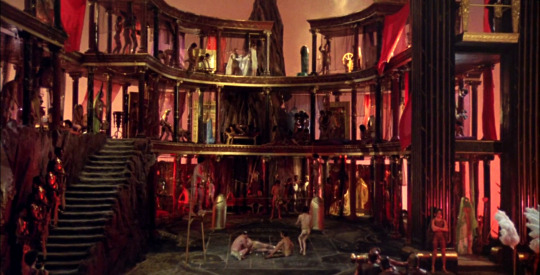
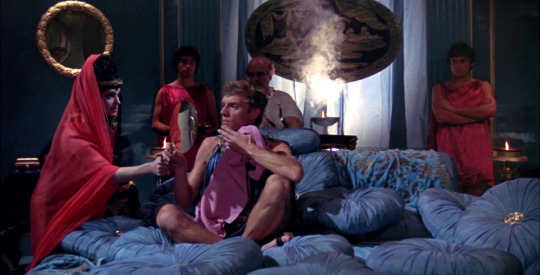


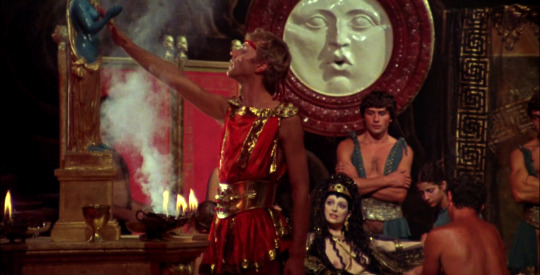


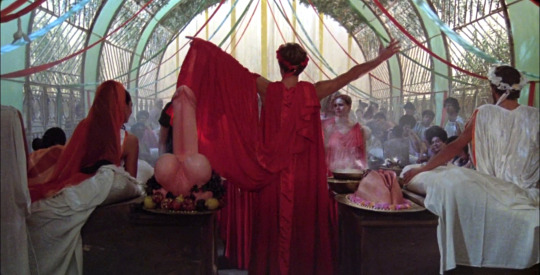
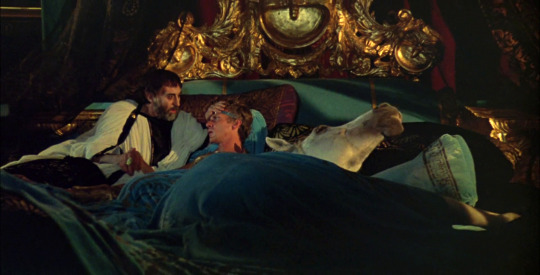


Caligula (1979)
#caligula#caligula 1979#tinto brass#malcolm mcdowell#teresa ann savoy#adriana asti#peter o'toole#guido mannari#helen mirren#1970s#1979#drama#filmedit#film#cinema#movies
246 notes
·
View notes
Text

On the set of La ricotta (1963) Pier Paolo Pasolini
19 notes
·
View notes
Text

#movies#polls#the best of youth#best of youth#2000s movies#marco tullio giordana#luigi lo cascio#alessio boni#adriana asti#sonia bergamasco#fabrizio gifuni#have you seen this movie poll
25 notes
·
View notes
Text









Caligula (1979)
#caligula#malcolm mcdowell#helen mirren#guido mannari#adriana asti#peter o'toole#bruno brive#tinto brass#film#movies#cinematography#costume design#art#set design
7 notes
·
View notes
Text

Conviene far bene l'amore 1975
17 notes
·
View notes
Text
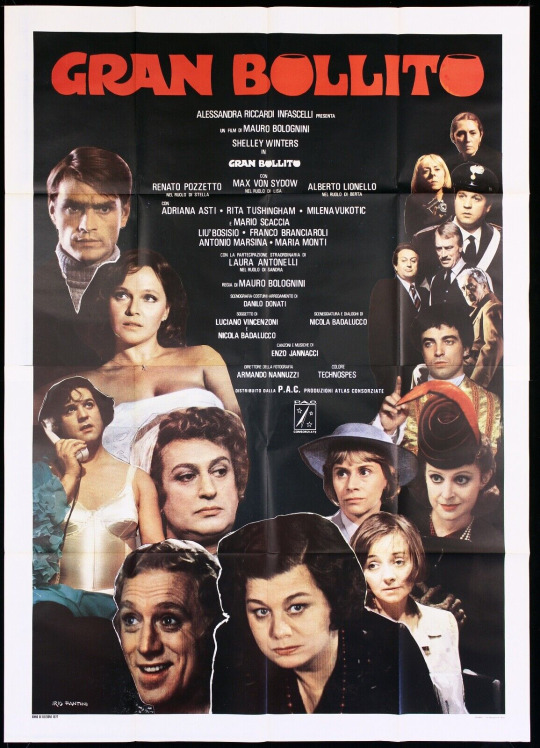




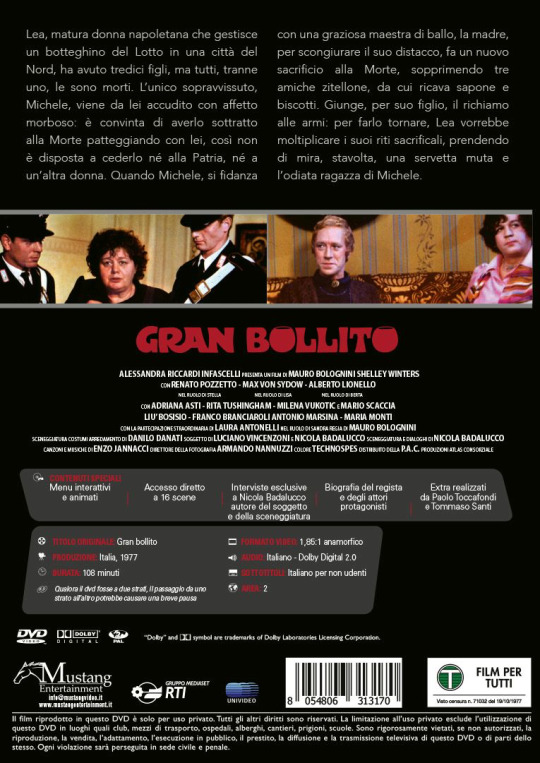

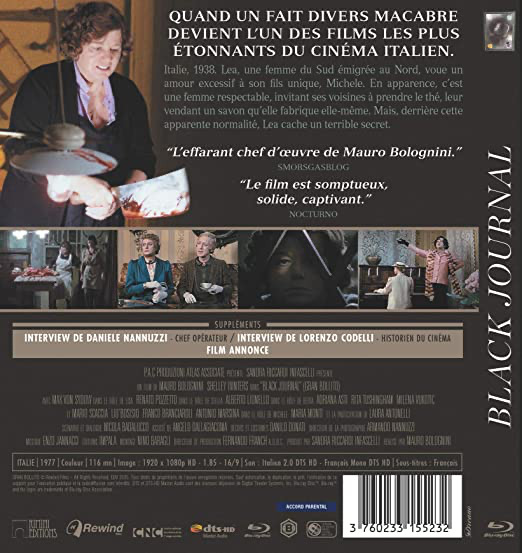
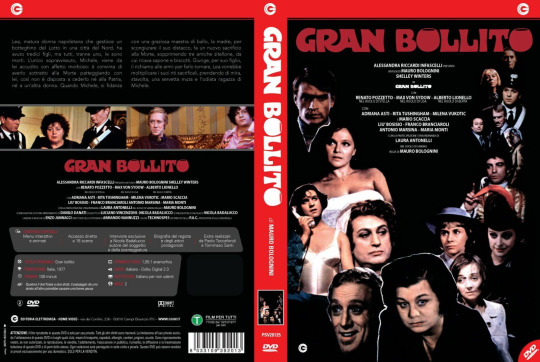
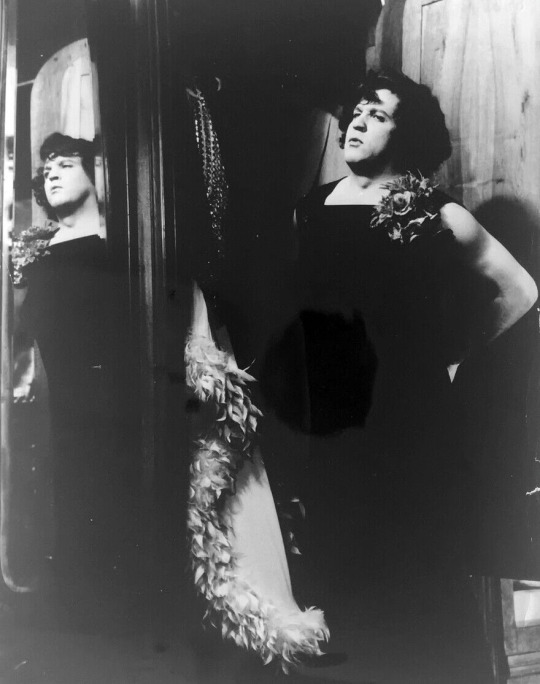
#gran bollito#mauro bolognini#shelly winters#renato pozzetto#alberto lionello#max von sydow#laura antonelli#milena vukotic#adriana asti#antonio marsina#giallo fever#giallofever#italian giallo#giallo all’italiana#giallo italiano#giallo films#giallo film#gialli#giallo#italian cult#italian horror
10 notes
·
View notes
Text

Adriana Asti (Gina) em "Prima della Rivoluzione", 1964.
“Chi non ha vissuto gli anni prima della rivoluzione non può capire che cosa sia la dolcezza del vivere”. Calma aí, ó Talleyrand...
2 notes
·
View notes
Text
BEFORE THE REVOLUTION:
Young posh progressive
Has a crisis of belief
Seeking connection
youtube
#before the revolution#random richards#poem#haiku#poetry#haiku poem#poets on tumblr#haiku poetry#haiku form#poetic#1001 movies#1001 movies you must see before you die#prima Della rivoluzione#adriana asti#Francesco barilli#Allen Midgette#Morando Morandini#bernardo bertolucci#Gianni Amico#Youtube
0 notes
Text
Le Fantôme de la liberté (1974) Luis Buñuel
51 notes
·
View notes
Text
Due film fluviali
Quasi per espridelescalié rimando i necess. saluti e giocomi il bonus titolo per due film, lasciando ai Cahiers du cinéma / Castori auf Tumblr, ossia @jacobyouarelost , palabras mas precise e serie. Sono due film speciali su adolescenti famiglie e questo mondaccio pazzo.
Il primo è 怪物 Mostro / L'innocenza di Kore'eda Hirokazu (cognome + nome). Uno dei più bei firm sui ragazzini e i maestri e i genitori e la scuola, LA SCUOLA, e l'amore «da li tempi de Truffaut» (la cit. ci tiene a essere non zerocalcarea - pur con tutto ir rispetto - bensì holliwoodpartiana). Costruito come il bellissimo Nel bosco di Akutagawa Ryūnosuke, che fu poi Rashomon, e (meglio di) Anatomia di una caduta, fatta la tara a Sandra Hüller, che Gott (sempre gelobt sei) la preservi sempre e per sempre. Kore'eda ci insegna il disastro di tutti e i loro effetti sui picc. Le chiuse tracimano, i fiumi scorrono e poi esondano. È anche film di rinascita e resurrezione: e su questo, per favore, si suggerisca ad Alice Rohrwacher di tornare indré nel tempo, und rifare il catechistico La chimera dopo essere andata a guardarlo. Musica, ultime musiche di Sakamoto Ryuichi. Al tuo arrivo ti accolgano i martiri, e ti conducano etc.
Il secondo è La vita accanto, MTGiordana incontra l'alter-ego più anziano MBellocchio. Circolano frasette sceme su questo film; mi sento un po' autorizzato a blaterarci anche me, perché ebbi conosciuto: anni molti li conservatori; le aule delle elementari con Tania, che anche lei come etc.; troppi giorni, prima der Pisano, tri(-meno1)veneti (lascerò alle etnografie di @trilo-bite disamine più fini, e all'Istituto Nazionale di G e V); alcune signore iscambianti l'esistenza per gl'ingranaggi; molti occhiali con la montatura nera squadrata und spessa. Chi dice che MTGiordana non fa film così squadrati non ricorda Quando sei nato non puoi più nasconderti.
Fantasmi, cadute, i disegni I DISEGNI della gente bimba, anche quando bimba non è più, e i libri, TUTTI QUEI LIBRI, come diceva Adriana Asti da qualche parte, che Dio preservi sempre. Gli sguardi di quella particolare società dell'aidòs che è il Veneto e plebeo e borghese, e di nuovo i nefasti quod Deus avortat effetti sui piccoli, soprattutto le piccole più o meno piccole, e l'acqua che Vincenza bagna, sempre lì disponibile per la soluzione. Che belli i volti (le riprese dei volti), e la musica, e la Bergamasco che torna a suonare. Film-Méliès, con inquadrature e dialoghi di grande tenerezza e altre specchio della grande inquietudine. Una tragedia greca nella città del teatro olimpico e dei militari americani. Terra terra e insieme alta come quelle greche, davvero.
Francesca Bellè: voleva fare la rockstar, è sempre più brava. Michela Cescon, che era in Quando sei nato, non la accarezza nessun tempo che scorre, recita come davanti al Grande Manito.
11 notes
·
View notes
Text
Janvier MMXXV
Films
747 en péril (Airport 1975) (1974) de Jack Smight avec Charlton Heston, Karen Black, George Kennedy, Efrem Zimbalist Jr., Susan Clark, Roy Thinnes, Sid Caesar, Helen Reddy, Linda Blair, Dana Andrews et Gloria Swanson
Les Trois Mousquetaires (The Three Musketeers) (1948) de George Sidney avec Gene Kelly, Lana Turner, June Allyson, Vincent Price, Van Heflin, Keenan Wynn, John Sutton, Gig Young, Robert Coote, Angela Lansbury et Frank Morgan
Le Dernier Empereur (L'ultimo imperatore, The Last Emperor) (1987) de Bernardo Bertolucci avec John Lone, Richard Vuu, Tijger Tsou, Wu Tao, Joan Chen, Peter O'Toole, Ruocheng Ying, Henry O, Wu Jun Mei, Victor Wong et Ric Young
Zorro (1975) de Duccio Tessari avec Alain Delon, Stanley Baker, Ottavia Piccolo, Moustache, Enzo Cerusico, Giacomo Rossi Stuart, Giampiero Albertini et Adriana Asti
Jules et Jim (1962) de François Truffaut avec Jeanne Moreau, Oskar Werner, Henri Serre, Marie Dubois, Cyrus Bassiak, Sabine Haudepin, Annie Nelsen, Vanna Urbino et Bernard Largemains
Le Bal des cinglés (Operation Mad Ball) (1957) de Richard Quine avec Jack Lemmon, Kathryn Grant, Ernie Kovacs, Dick York, Arthur O'Connell, Mickey Rooney et Jeanne Manet
Witness (1985) de Peter Weir avec Harrison Ford, Kelly McGillis, Josef Sommer, Lukas Haas, Jan Rubes, Alexander Godunov, Danny Glover, Brent Jennings, Patti LuPone et Viggo Mortensen
Mes chers amis (Amici miei) (1975) de Mario Monicelli avec Philippe Noiret, Ugo Tognazzi, Gastone Moschin, Duilio Del Prete, Adolfo Celi, Bernard Blier, Olga Karlatos, Franca Tamantini et Milena Vukotic
La Diablesse en collant rose (Heller in Pink Tights) (1960) de George Cukor avec Sophia Loren, Anthony Quinn, Steve Forrest, Margaret O'Brien, Eileen Heckart, Ramon Novarro, Edmund Lowe et George Mathews
Faster, Pussycat! Kill! Kill! (1965) de Russ Meyer avec Tura Satana, Haji, Lori Williams, Susan Bernard, Stuart Lancaster, Paul Trinka, Dennis Busch et Ray Barlow
Sept Ans au Tibet (Seven Years in Tibet) (1997) de Jean-Jacques Annaud avec Brad Pitt, David Thewlis, B. D. Wong, Mako, Danny Denzongpa, Victor Wong, Ingeborga Dapkunaite, Jamyang Jamtsho Wangchuk et Lhakpa Tsamchoe
Buffet froid (1979) de Bertrand Blier avec Gérard Depardieu, Bernard Blier, Jean Carmet, Michel Serrault, Jean Rougerie, Geneviève Page, Carole Bouquet, Jean Benguigui, Bernard Crombey et Liliane Rovère
Le Sang des Atrides (1981) de Samuel Itzkovitch avec Julien Guiomar, Jacques Spiesser, Eva Swann, Renée Faure, Joëlle Larivière, Yves Coudray, Edith Scob, Philippe Villiers, Isa Mercure, Gisèle Grimm et Danielle Durou
La Carapate (1978) de Gérard Oury avec Pierre Richard, Victor Lanoux, Raymond Bussières, Jean-Pierre Darras, Yvonne Gaudeau, Jacques Frantz, Claire Richard, Blanche Ravalec, Claude Brosset, Bernard Granger, Éric Desmaretz et Katia Tchenko
Le Secret des andrones (1982) de Samuel Itzkovitch avec Julien Guiomar, Françoise Christophe, Catherine Rouvel, Serge Sauvion, Dora Doll, Hélène Vallier, Louise Conte, Gabriel Cattand, André Falcon, André Rouyer et Gabriel Gobin
Séries
Le Flic de Shanghaï Saison 1
Un chinois à Los Angeles - Tout doit disparaître - Ultimes Combats - Monnaie de singe - Les Justiciers - Mesures d'urgence - La République de la liberté - Cuisine à haut risque - La Dette - Les Ninjas - Derrière les barreaux - Le Maître du déguisement - Un prof pas comme les autres - Espèces en danger - L'Évasion - Trafic - Tiercé perdant - Méthodes musclées - La Grosse Artillerie - Tempête rouge - Requiem - Fin de partie
Kaamelott Livre I
Le Duel - L'Invasion viking - La Bataille rangée - La Romance de Perceval - Les Funérailles d'Ulfin - Le Chevalier femme - La Carte - Le Repas de famille - Le Répurgateur - Le Labyrinthe - Heat - Les Tartes aux myrtilles - La Table de Breccan - Le Chevalier mystère - Le Fléau de Dieu - Le Garde du corps - Des nouvelles du monde - Codes et Stratégies - Le Maître d’armes - Le Négociateur - Dîner dansant - Le Sixième Sens - Arthur et la Question - Monogame - Les Défis de Merlin - Le Banquet des chefs - Le Signe - En forme de Graal - Le Repos du guerrier - La Dent de requin - La Taxe militaire - La Queue du scorpion - La Potion de fécondité - L’Interprète - Le Sacrifice - À la volette - De retour de Judée - La Botte secrète - L’Assassin de Kaamelott - Le Trois de cœur - Basidiomycètes - L’Imposteur - Compagnons de chambrée - La Grotte de Padraig - Ambidextrie - Raison d’argent - La Romance de Lancelot - Merlin et les Loups - Le Cas Yvain - L’Adoubement - Arthur et les Ténèbres - Le Zoomorphe - La Coccinelle de Madenn - Patience dans la plaine - Le Oud - Le Code de chevalerie - Létal - Azénor - Le Sort de rage - Les Nouveaux Frères - Enluminures - Haunted - Le Secret de Lancelot - Le Serpent géant - Guenièvre et les Oiseaux - Le Dernier Empereur - Perceval relance de quinze - Le Coup d’épée - La Jupe de Calogrenant - Le Prodige du fakir - Un bruit dans la nuit - Feu l’âne de Guethenoc - Goustan le Cruel - Le Chaudron rutilant - La Visite d’Ygerne - Les Clandestins - La Kleptomane - Le Pain - La Mort le Roy Artu - Le Problème du chou - Un roi à la taverne - Les Fesses de Guenièvre - Le Billet doux - Guenièvre et l’Orage - Eunuques et Chauds Lapins - Choc frontal - Le Forage - Le Discobole - L’Expurgation de Merlin - Les Volontaires - Polymorphie
Psych Saison 7, 8
Virée mexicaine - Une soirée mystérieuse - Quel cirque ! - Mariage mouvementé - Vies parallèles - Jeune femme partagerait appartement - Impair et Maire - Meurtre au bureau - Radio meurtre - Une affaire qui déride ! - La Truite sur le dos - Tous en scène ! Acte 1 - Tous en scène ! Acte 2 - Braquage à l'anglaise - S. A. I. S. I. R. sa chance - Sale temps à Santa Barbara - Le Bon Méchant - Sherlock Gus - Retour vers le passé - Meurtre à emporter - Un groupe d'élites - La Nuit des Shawn vivants - Partir un jour ou pour toujours
Friends Saison 7, 8
Celui qui retrouvait son rôle - Celui qui avait toujours l'air bizarre - Celui qui aimait les petites siestes - Celui qui avait un livre à la bibliothèque - Celui qui n'aimait pas les chiens - Celui qui offrait un vélo - Celui qui se déguisait - Celui qui aimait les cheesecakes - Celui qui a passé la nuit debout - Celui qui a vu mourir Rosita - Ceux qui avaient trente ans - Celui qui avait un cerveau neuf - Celui qui savait la vérité sur Londres - Celui qui voyait la robe de mariée - Celui qui récupérait le prix - Celui qui avait une jolie cousine - Celui qui fantasmait sur le baiser - Celui qui écrivait ses vœux - Celui qui rencontrait l'auteur de ses jours - Celui qui a épousé Monica : première partie - Celui qui a épousé Monica : deuxième partie - Celui qui venait de dire oui - Celui qui avait un sweat rouge - Celui qui découvrait sa paternité - Celui qui avait une vidéo - Celui qui draguait Rachel - Celui qui perturbait Halloween - Celui qui voulait garder Rachel - Celui qui engageait une strip-teaseuse - Celui qui avait fait courir la rumeur - Celui qui défendait sa sœur - Celui qui ne voulait pas aller plus loin - Celui qui passait une soirée avec Rachel
Astrid et Raphaëlle Saison 3
Plan global - Memento Mori - Natifs - La Chambre ouverte - Témoin - Sang d'or - Les Fleurs du mal - En souterrain
Affaires sensibles
L'affaire Maureen Kearney, la véritable histoire de "La syndicaliste" - Violette Morris, championne déchue devenue collabo - Covid 19 : Décembre 2019, Mars 2020 : le basculement du monde (épisode 1) - Covid 19 : France, 55 jours en temps de pandémie (épisode 2) - Le gang des Impressionnistes - L'affaire Magali Blandin, en direct et en public du studio 104 de la Maison de la Radio et de la Musique - Suffragistes et suffragettes : au Royaume-Uni, la lutte des femmes pour le droit de vote - Opération Merlin - Les Disparues de Pontcharra - 1906, la catastrophe minière de Courrières - Liévin, 27 décembre 1974 : quand la mine assassine - Michel Blanc l’insaisissable - L'assassinat du ministre Joseph Fontanet - L’affaire des caricatures de Mahomet : l’avant-Charlie
The Rookie Saison 6
Contre-attaque - Un mariage plein de surprises - Panique sous les tropiques - Le tueur au pentagramme - Le serment - Mensonges et secrets - Cherche nounou désespérément - Guerre ouverte - L’Étau se resserre - L’Évasion
Commissaire Moulin Saison 2
Le Transfuge - La Bavure - L'amie d'enfance - Le Patron - Une promenade en forêt
Les Cinq Dernières Minutes Saison 1
45 tours et puis s'en vont - Un mort sur le carreau
K2000 Saison 1
La revanche : première partie - La revanche : deuxième partie - Manœuvres mortelles - L'équipée sauvage - Les cascadeurs - Motion de censure - Jusqu'à la dernière goutte - Témoin gênant - Le prototype - La taupe - Verdict final - Les professionnels
Inspecteur Barnaby Saison 24
L'œuvre du démon
Peacemaker Season 1
A Whole New Whirled - Best Friends, For Never - Better Goff Dead - The Choad Less Traveled
Spectacles
Concert du Nouvel An en direct du Musikverein, à Vienne (2025)
Henri Salvador : Bonsoir Amis Live Au Palais Des Congrès (2004)
La Cage aux folles (1973) de et avec Jean Poiret et aussi Michel Serrault, Philippe Lavot, Jacqueline Mille, Danièle Luger, Marcelle Ranson-Hervé, Marco Perrin, Paul Demange et Benny Luke
All Star Jazz Show: Live From the Ed Sullivan Theater (1977) avec Lionel Hampton, Herbie Hancock, Gerry Mulligan, Count Basie, Gary Keys, Dizzy Gillespie, Max Roach, Stan Getz et Joe Williams
Alex Vizorek est une dernière fois une œuvre d'art (2020)
The Cure: Anniversary 1978-2018 : Live in Hyde Park (2018)
Livres
Superman Bimestriel Tome 4 : Maitre des roches lunaires
La Belle Maison de Franz Bartelt
Astérix, tome 7 : Le combat des Chefs de René Goscinny et Albert Uderzo
Une enquête du commissaire Dupin : Crime gourmand à Saint-Malo de Jean-Luc Bannalec
Azincourt par temps de pluie de Jean Teulé
0 notes
Photo










Accattone (1961) Pier Paolo Pasolini
May 27th 2023
#accattone#1961#pier paolo pasolini#franco citti#franca pasut#silvana corsini#adriana asti#piero morgia#bernardo bertolucci#the procurer#accattone!#the scrounger
25 notes
·
View notes
Link
MOVIE/ PARMA CELEBRA BERNARDO BERTOLUCCI A SESSANTA ANNI DALL’USCITA DEL FILM PRIMA DELLA RIVOLUZIONE CON ADRIANA ASTI
0 notes
Text
LA MEGLIO GIOVENTU’, di Marco Tullio Giordana, Con: Luigi Lo Cascio, Adriana Asti, Sonia Bergamasco, Maya Sansa, Fabrizio Gifuni , Jasmine Trinca, Alessio Boni, Camilla Filippi, Valentina Carnelutti, Andrea Tidona, Lidia Vitale, Greta Cavuoti, Riccardo Scamarcio, Claudio Gioé, Danilo Maria Valli, Stefano Abbati, Aldo Innocenti, 2003
LA MEGLIO GIOVENTU’, di Marco Tullio Giordana, Con: Luigi Lo Cascio, Adriana Asti, Sonia Bergamasco, Maya Sansa, Fabrizio Gifuni , Jasmine Trinca, Alessio Boni, Camilla Filippi, Valentina Carnelutti, Andrea Tidona, Lidia Vitale, Greta Cavuoti, Riccardo Scamarcio, Claudio Gioé, Danilo Maria Valli, Stefano Abbati, Aldo Innocenti, 2003
0 notes
Text
A Movie Dedicated To The People Of Italy
The movie that I'm thinking about on this Sunday evening is one that was written about extensively by many different writers -- first, throughout Europe, starting when it debuted at the Cannes International Film Festival in May of 1964 -- and then, here, in the U.S., when it played in theaters, starting on July 16, 1965.
Interest in this movie has continued through the decades to the present, because of the main thread of the plot. The movie is called in Italian, PRIMA DELLA RIVOLUZIONE, which translates into English as BEFORE THE REVOLUTION...
Fabrizio (Francisco Barilli), a young adult male who appears to be in his late teens, lives in the city of Parma, Italy, with his father, mother, and little brother. He is tormented by the injustices of Italian society and by corruption that too many Italians accept.
Fabrizio is a member of the Communist Party and reveres an older man named Cesare (Morando Morandini) who has taught him history, literature, and political theory, for a number of years.
Fabrizio is upset about the fact that the Party does not seem to be making any progress in bringing about a Revolution.
At the beginning of PRIMA DELLA RIVOLUZIONE, Fabrizio is urging a friend of his, another young man named Agostino (Allen Midgette), to join the Party and to introduce himself to Cesare, so that he -- Agostino -- can also learn from the older teacher who believes in the need for Revolution.
Shortly after Fabrizio and Agostino argue over what Fabrizio says are mistakes in judgment that Agostino is making, Fabrizio learns that his friend has drowned in an accident. The news affects Fabrizio deeply; he tells himself that Agostino took his life.
Fabrizio is also conflicted about two women with whom he wants to have a relationship. There's Clelia who is from Parma and there's also his Aunt, Gina (Adriana Asti), who has been living in Milan -- until recently, when she arrived in Parma.
The bulk of the plot of this 105-minute movie details Fabrizio's attempts at figuring out what his priorities are supposed to be. For me to disclose how the movie ends would be a mistake, because writer-director Bernard Bertolucci is serious about the personality details of his main characters; i.e., the way that they relate to each other, the way that they think. These details are important to Mr. Bertolucci; he wants the audience to discover these details on their own, for themselves, as they happen on-screen.
And when you -- you who are reading my words -- get to the end of the movie, I'm reasonably certain that you'll figure out that the movie is criticizing the Communist Party. The Party has no plan of action and is not communicating effectively with Fabrizio's generation.
Some sixty years later, some sixty years after PRIMA DELLA RIVOLUZIONE debuted, Italian society has changed greatly. It has become more complicated. The world, in general, has also changed, as well as Italy's relationships with other countries throughout the world; relationships between countries have become more complicated. Would an Italian man or woman in his or her 70's have any coherent advice about what the Italian government should stand for, what the government's priorities should be? Would a young man or woman in his or her 20's agree with that advice?
If any of this sounds interesting, PRIMA DELLA RIVOLUZIONE is available on DVD with English subtitles.
-- Drew Simels
0 notes